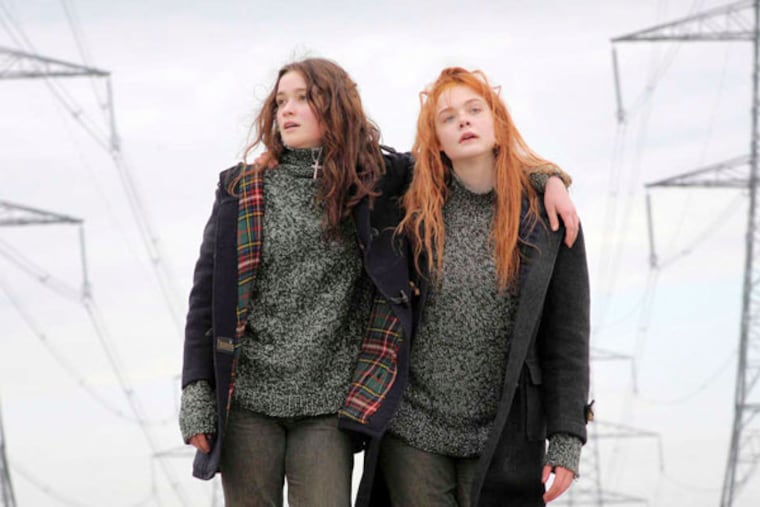'Ginger & Rosa': Heartbreaking tale of growing up, growing apart
Elle Fanning is scary. Scarily good. In Sally Potter's beautiful, heartbreaking Ginger & Rosa, the actress, all of 13 when she made the film, plays a 17-year-old Londoner in the throes of emotional and psychological tumult. It is 1962, and the Cuban Missile Crisis has put the world at the ed

Elle Fanning is scary. Scarily good.
In Sally Potter's beautiful, heartbreaking Ginger & Rosa, the actress, all of 13 when she made the film, plays a 17-year-old Londoner in the throes of emotional and psychological tumult. It is 1962, and the Cuban Missile Crisis has put the world at the edge of war, with Kennedy and Khrushchev and Castro in a grim game of brinkmanship. Fanning's Ginger listens to the radio reports of estimated fatalities - millions across Great Britain and Europe - and then tries to go to sleep. Good luck with that.
But it's not just nightmares about London turning into Hiroshima that keep Ginger on edge. The marriage between her radical intellectual peacenik dad (Alessandro Nivola) and her artist-turned-housewife mom (Christina Hendricks, far afield from Mad Men) is collapsing. And Rosa (Alice Englert), Ginger's best friend since infancy - they were born on the same day, at the same time, in the same hospital - has a new restlessness in her eyes. The duo dress alike. They escape to the beach together. They march to ban the bomb. Side by side in back alleys, they kiss boys, exchanging knowing, amused looks. But as the girls are growing up, Rosa is growing apart, too.
And Fanning, in this bittersweet coming-of-age tale, is so wholly inside her character, so there in every moment, that we forget we're watching a performance. (And a technically demanding one: The So-Cal kid deploys a pitch-perfect English accent.) Potter's cinematographer, the great Robbie Ryan, goes close in, capturing the ache and exhilaration, the passion and the profound distress on Fanning's face - on her face, and in her soul. Where she draws all this from, who knows? But it's remarkable.
And while Ginger & Rosa is very much a story told from Ginger's point of view, Potter gets a similarly smart, intuitive performance from Englert (the daughter of filmmaker Jane Campion, recently seen in the supernatural tween hooey Beautiful Creatures). Nivola, in a messy, complex role, is a self-absorbed writer and teacher whose rigorous embrace of the ideals of personal freedom and autonomous thought has spilled over into his love life. If he wants an affair with one of his students, or with another young lover, why shouldn't he?
Ginger is watched over by old family friends, a gay couple (Timothy Spall and Oliver Platt) whose houseguest, a New York poet (Annette Bening), sees a kindred spirit in the girl. Ginger writes poetry, too.
Potter, who launched Tilda Swinton in the time-traveling, gender-switching Virginia Woolf adaptation Orlando, walks Ginger down a path full of hurt and betrayal. If the ending of Ginger & Rosa explodes in a mushroom cloud of melodrama, it's the melodrama of real life. Just look into Fanning's tearful eyes, at her quaking, shaking body.
There's nothing fake about it.EndText